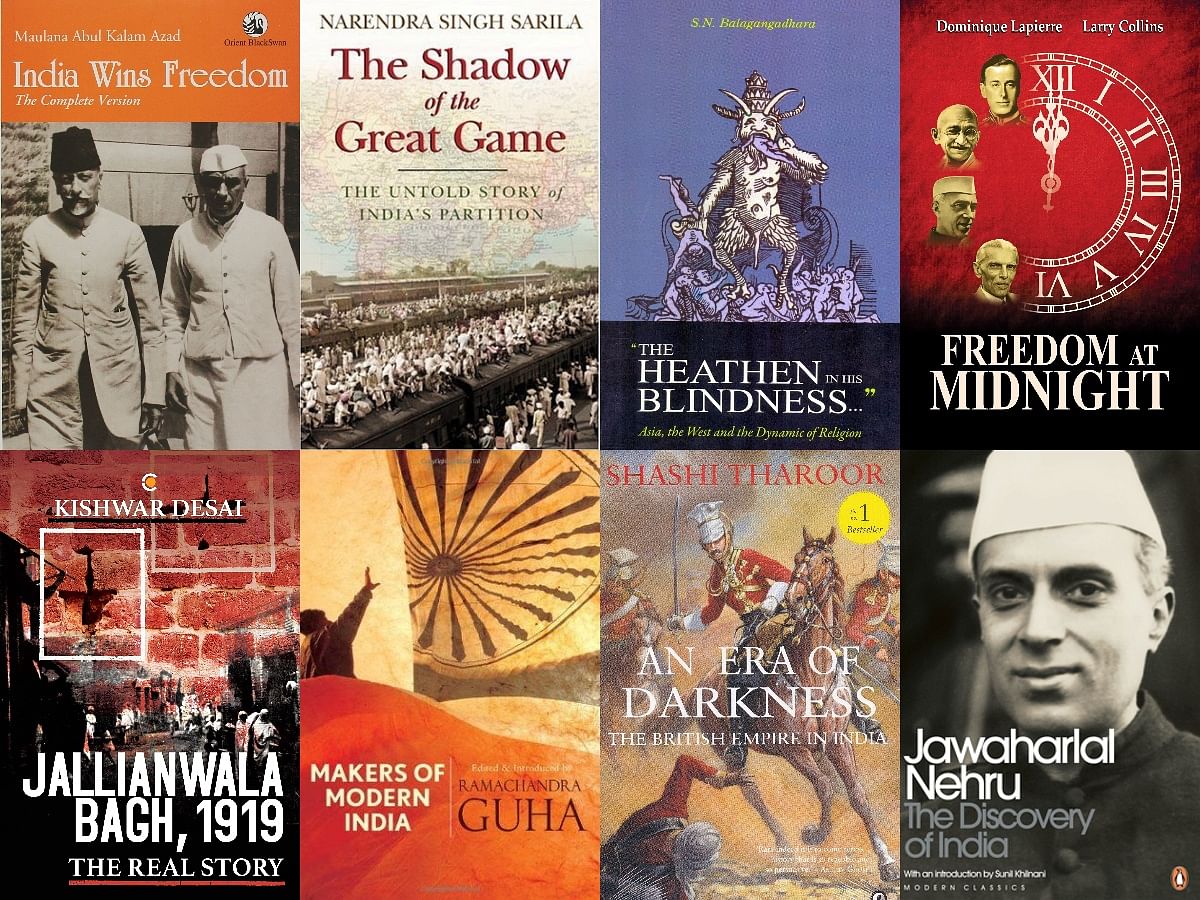
These books carry stories of courage, wisdom and how stalwarts led India to freedom. Each book is unique in its form and content. The views are diverse and offer a clear picture of pre and post-independent India.
Metrolife lists out a few of them.
The Discovery of India by Jawaharlal Nehru (1946)
Jawaharlal Nehru wrote the book during his imprisonment at Ahmednagar Fort for participating in the Quit India Movement (1942-1946). The book was written during the four years of confinement and was his way of paying homage to India and its rich culture. It is regarded as one of the finest pieces of writing in Indian history.
An Era of Darkness by Shashi Tharoor (2016)
In this book, bestselling author and politician Shashi Tharoor reveals just how disastrous British rule was for India. In the book, he examines the many ways in which the colonisers exploited India, ranging from the drain of national resources, the destruction of the Indian textile, steel-making and shipping industries, and the negative transformation of agriculture. He demolishes the arguments of Western and Indian apologists for Empire on the supposed benefits of British rule, including democracy and political freedom, the rule of law, and the railways. An Era of Darkness serves to correct many misconceptions about one of the most contested periods of Indian history.
India Wins Freedom by Abul Kalam Azad (1988)
Written originally in Urdu by one of the architects of modern India, India Wins Freedom is an enlightening account of the partition of the country from Maulana Azad’s perspective. It includes his personal experiences of when India became independent and his ideas on freedom and liberty. The book traces the events that led to the partition in a profound and frank manner.
The book was sealed on its initial release for its controversial take on Indian Independence. It later sold over 30 million copies all over the world when released to the public.
The Heathen in his Blindness by S N Balagangadhara (1994)
Today, most intellectuals agree that Christianity has profoundly influenced western culture; members from different cultures experience many aspects of the world differently; the empirical and theoretical study of both culture and religion emerged within the West. The present study argues that these truisms have implications for the conceptualization of religion and culture. More specifically, the thesis is that non-western cultures and religions differ from the descriptions prevalent in the West, and it is also explained why this has been the case. Religion is important to the West because the constitution and the identity of western culture is tied to the dynamic of Christianity as a religion.
The Shadow of the Great Game: The Untold Story of India’s Partition by Narendra Singh Sarila (2005)
A radical reassessment in British colonial history by the former ADC to the last Viceroy of British India is important, but Sarila’s claim that current Islamic terrorism is partially rooted in Partition has wider implications. Historians have underestimated the role of British strategic interests: fears about the USSR’s control of Middle Eastern oil wells and access to the Indian Ocean. New material on figures like Gandhi, Jinnah, Mountbatten, Churchill, Attlee, Wavell, and Nehru are offered.
Freedom at Midnight by Dominique Lapierre and Larry Collins (1975)
It describes events around Indian independence and partition in 1947-48, beginning with the appointment of Lord Mountbatten of Burma as the last viceroy of British India, and ending with the death and funeral of Mahatma Gandhi. It is widely seen as a sensationalised account of events but an entertaining read nonetheless.
Makers of Modern India by Ramachandra Guha (2010)
In Makers of Modern India, one will read about caste, religion, colonialism, the economy, language, gender, nationalism, democracy and secularism in a historical context.
The book is a treat for those who are curious about the formation of the multifarious collection of people, ideas and religions in India.
Guha shows you how the lack of unison in the opinions of the makers of India complemented each other and resulted in the finished product called India. The author is a notable and respected historian and activist.
Jallianwala Bagh, 1919 by Kishwar Desai (2018)
It’s been a century since the massacre at Jallianwala Bagh, but Punjab is still to recover from the shock of it and the British Empire never did either. The impact of the event rang through the entire country through the empires remaining time in India. Yet, the true horror of the event itself has been forgotten.
What was the catalyst for the event? Why did the British feel the need to impose Martial law on Amritsar? Why did the people of Punjab suffer barbaric punishments, including public flogging and bombings, unknown to the rest of the world? These were a few of the questions that fuelled the research for this book.
The book provides a sharp analysis of General Dyer’s actions and their fallout — the official narrative and the counter Indian narratives. Kishwar Desai is an Indian author and columnist who is also the chair of TAACHT.